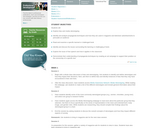
The lesson and activities teach students to recognize and explore bias and media stereotyping and be able to identify and analyze propaganda techniques in magazine and//or TV advertising.

The lesson and activities teach students to recognize and explore bias and media stereotyping and be able to identify and analyze propaganda techniques in magazine and//or TV advertising.
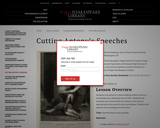
Students will perform a close reading of Mark Antony's monologue by cutting the text by 50%. Students will evaluate use of tone within the speech and choose appropriate tone words for the monologue. Students will perform the monologue for the class.
This activity could be used with other monologues as well as speeches.
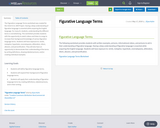
The Figurative Language Terms worksheet was created for the CESA #1 EL OER Project. Having a deep understanding of figurative language is essential while acquiring the English language. For many EL students, understanding the different terms is overwhelming. This worksheet provides students with the opportunity to watch videos and listen to songs to increase their background knowledge of various figurative language terms. Students will have exposure to: simile, metaphor, hyperbole, onomatopoeia, alliteration, idiom, allusion, and personification. They will also have an opportunity to demonstrate their understanding of the terms by writing definitions, drawing labeled pictures, and/or creating individual examples.
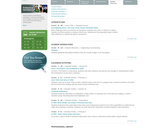
What is scary, and why does it fascinate us? How do writers and storytellers scare us? This lesson plan invites students to answer these questions by exploring their own scary stories and scary short stories and books. The lesson culminates in a Fright Fair, where students share scary projects that they have created, including posters, multimedia projects, and creative writing.

In Module 10.1, students engage with literature and nonfiction texts and explore how complex characters develop through their interactions with each other, and how these interactions develop central ideas such as parental and communal expectations, self-perception and performance, and competition and learning from mistakes.
Find the rest of the EngageNY ELA resources at https://archive.org/details/engageny-ela-archive .

In this module, students read, discuss, and analyze nonfiction and dramatic texts, focusing on how the authors convey and develop central ideas concerning imbalance, disorder, tragedy, mortality, and fate.
Find the rest of the EngageNY ELA resources at https://archive.org/details/engageny-ela-archive .

In this module, students will read, discuss, and analyze contemporary and classic texts, focusing on how complex characters develop through interactions with one another and how authors structure text to accomplish that development. There will be a strong emphasis on reading closely and responding to text dependent questions, annotating text, and developing academic vocabulary in context.
Find the rest of the EngageNY ELA resources at https://archive.org/details/engageny-ela-archive .

In this module, students engage with literature and nonfiction texts that develop central ideas of guilt, obsession, and madness, among others. Building on work with evidence-based analysis and debate in Module 1, students will produce evidence-based claims to analyze the development of central ideas and text structure. Students will develop and strengthen their writing by revising and editing, and refine their speaking and listening skills through discussion-based assessments.
Find the rest of the EngageNY ELA resources at https://archive.org/details/engageny-ela-archive .
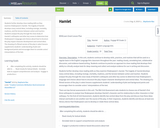
Students further develop close reading skills as they
examine Shakespeare’s Hamlet. The
tragedy of Hamlet develops many
central ideas, including revenge, mortality, madness, and the tension between
action and inaction. Students analyze the play through the close study of
Hamlet’s soliloquies and other key scenes to determine how Shakespeare’s
language and choices about how to structure the play impact character
development and central ideas. The showing of a filmed version of the play in
select lessons supplements students’ understanding of plot and background
points and encourages them to consider actors’ interpretations of the text.
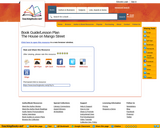
This is a great lesson to do either in the middle of the novel or as an introductory lesson. It is a great way for students to make connections to the content in the novel.
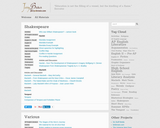
The mandala assignment allows students to demonstrate learning using figurative language in an artistic format.
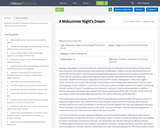
Remix this template to upload your WISELearn Grant lesson and unit plans into WISELearn
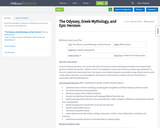
Remix this template to upload your WISELearn Grant lesson and unit plans into WISELearn
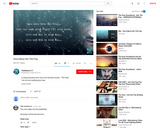
Music and reading of the poem "once more into the fray"

Students are introduced to the literary device of onomatopoeia and explore how the technique adds to a writer’s message. Students brainstorm a list of onomatopoeic words and then find examples of the technique in Edgar Allan Poe’s poem, “The Bells.†Once they find examples, students reflect on how the onomatopoeic words add to the poem and the writer’s message. They then apply their knowledge of the technique by choosing sound words in response to sounds they hear in an online tool. Following the lesson, students can look for additional examples of the literary device in their reading or look for places to add onomatopoeia to their writing.
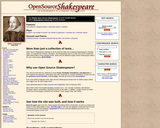
Open Source Shakespeare attempts to be the best free Web site containing Shakespeare's complete works. It is intended for scholars, thespians, and Shakespeare lovers of every kind. OSS includes the 1864 Globe Edition of the complete works, which was the definitive single-volume Shakespeare edition for over a half-century.
This site was built with four attributes in mind: Power, Flexibility, Friendliness, and Openness. It won't replace the expensive, subscription-only sites at libraries or research institutions, but you can use the advanced search function, read the plays, and look up words in the concordance.
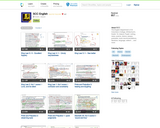
Show Me by SCC English is a site that offers close reading/annotating of passages from classic literature including The Great Gatsby; MacBeth; King Lear; Hamlet; Pride and Prejudice.
This resource is useful for modeling annotating a text for deeper meaning.
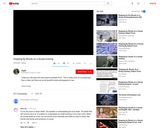
Reading of "Stopping By the Woods on a Snowy Evening" by Robert Frost

Your students will apply their knowledge of letters and letter sounds as they play games and interact with letters online, using what they see and learn to create their own ABC book.